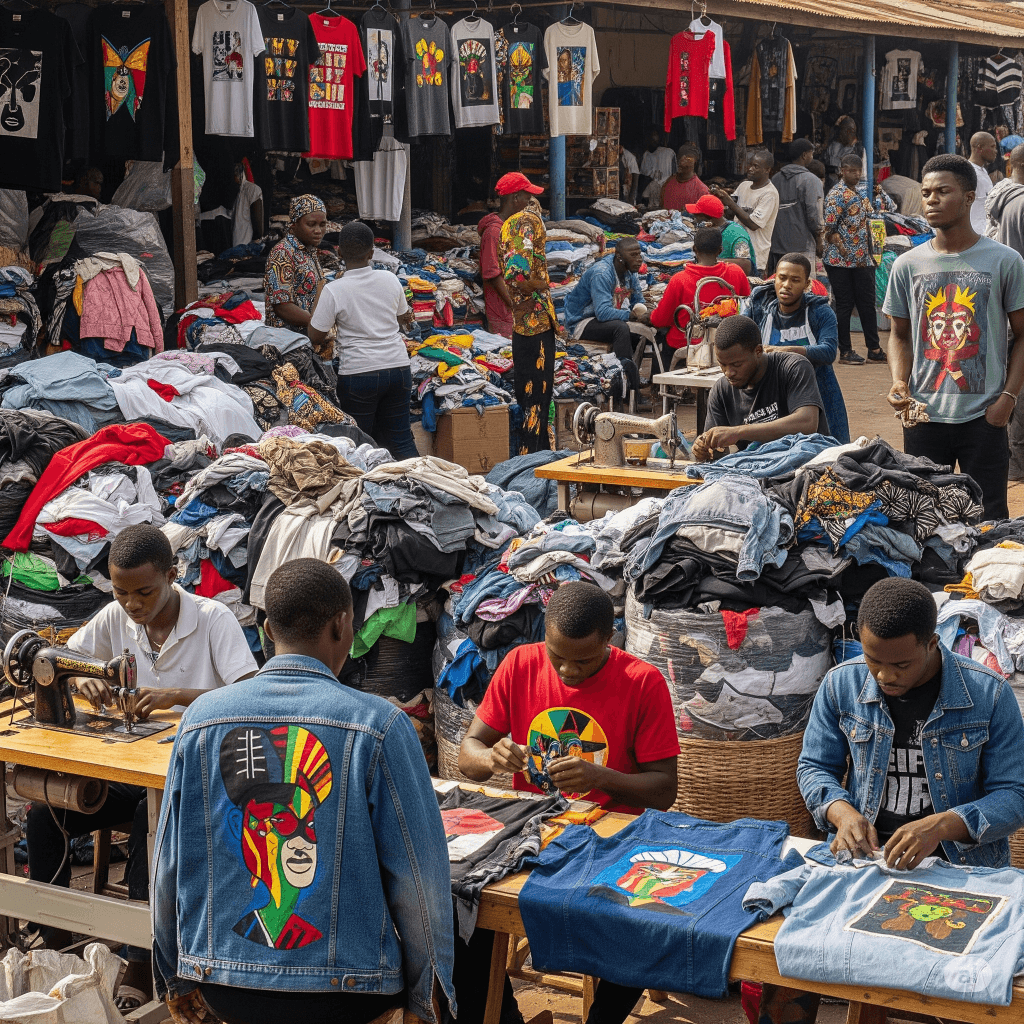Fast-Fashion Waste in Ghana: From Kantamanto Market to Upcycling Innovation
The global fashion industry is one of the world’s biggest polluters, and Ghana has found itself at the center of this growing crisis. Recently, TIME magazine turned international attention toward Kantamanto Market in Accra, widely recognized as the largest hub for second-hand clothes in the world.
Every week, Ghana receives thousands of tons of used clothing, mainly from Europe and North America. While some of these clothes are resold, a massive portion becomes fast-fashion waste in Ghana, clogging landfills, polluting waterways, and choking Accra’s environment. Yet, amid the crisis, local innovators and grassroots movements are transforming waste into opportunity through upcycling in Ghana.
The Fast-Fashion Waste Crisis in Ghana
At the heart of the issue is the relentless cycle of fast fashion — cheaply made clothes designed to be worn only a handful of times before being discarded. Much of this ends up shipped to African countries, with Ghana’s Kantamanto Market in Accra being one of the largest dumping grounds.
According to sustainability reports, nearly 40% of imported second-hand clothing becomes waste within days of arriving. These clothes often end up in drains, beaches, and open dumpsites, worsening Ghana’s sanitation and flooding problems.
This growing environmental burden has sparked calls for stricter regulation of imports, as well as innovative local solutions.
Kantamanto Market: The Hub of Second-Hand Fashion
Kantamanto Market Accra is a bustling center of trade where thousands of vendors sell used clothing, shoes, and accessories daily. For many Ghanaians, these clothes provide affordable fashion options. However, the market also highlights the darker side of the industry — bales of low-quality or damaged clothing that vendors cannot sell.
What cannot be sold becomes waste, costing traders money and leaving behind environmental damage. Yet, Kantamanto is not only a problem site — it is also becoming the starting point for Ghana sustainability news, thanks to creative responses from local entrepreneurs.
Upcycling in Ghana: Turning Waste Into Innovation
Amid the crisis, grassroots innovators are proving that waste can be a resource. Across Accra, organizations and designers are taking discarded clothes and giving them new life.
Some upcyclers repurpose unsold clothing into stylish, durable fashion pieces, while others transform textiles into bags, rugs, and household items. A few bold initiatives are even experimenting with turning fabric waste into building materials such as insulation and bricks.
These upcycling in Ghana efforts not only reduce environmental impact but also create jobs, inspire creativity, and push the nation toward a more circular economy.
Why the World is Watching Ghana’s Fashion Waste Story
The TIME feature on Ghana’s fast-fashion waste problem has brought global visibility to an issue long felt by local communities. For many international observers, Ghana represents the hidden cost of cheap fashion in wealthier nations.
But the story is not only one of crisis — it is also about resilience. By innovating and reclaiming waste as a resource, Ghana is setting an example for other nations grappling with textile pollution.
Moving Toward a Sustainable Future
Addressing fast fashion waste in Ghana will require collaboration between government, importers, traders, and innovators. Stronger import regulations, investment in recycling infrastructure, and support for local upcycling businesses can help reduce the burden on markets like Kantamanto.
For now, the innovators working tirelessly in Kantamanto Market Accra offer a glimpse of hope: that through creativity, sustainability, and resilience, Ghana can turn one of its biggest challenges into a global model for change.
Final Thoughts
The story of Kantamanto Market is more than just about second-hand clothes — it’s about the fight for sustainability, dignity, and innovation in the face of overwhelming global waste. As Ghana sustainability news continues to attract attention, the world will be watching how upcycling in Ghana shapes a more sustainable future.







